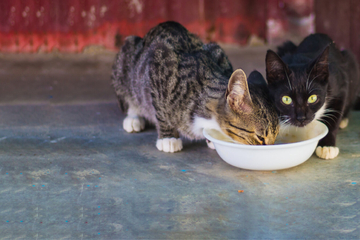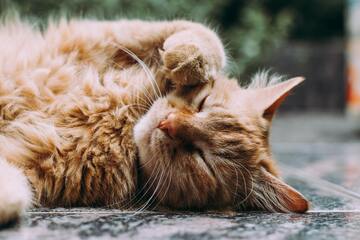Why your cat pees everywhere and tips to toilet train your feline
Did your feline friend lose control of its bladder all over your brand-new carpet or rug? Cat pee is known to be pretty stinky, and it can quickly ruin your most-loved household items. Why does your cat keep peeing everywhere, and what can you do to help?
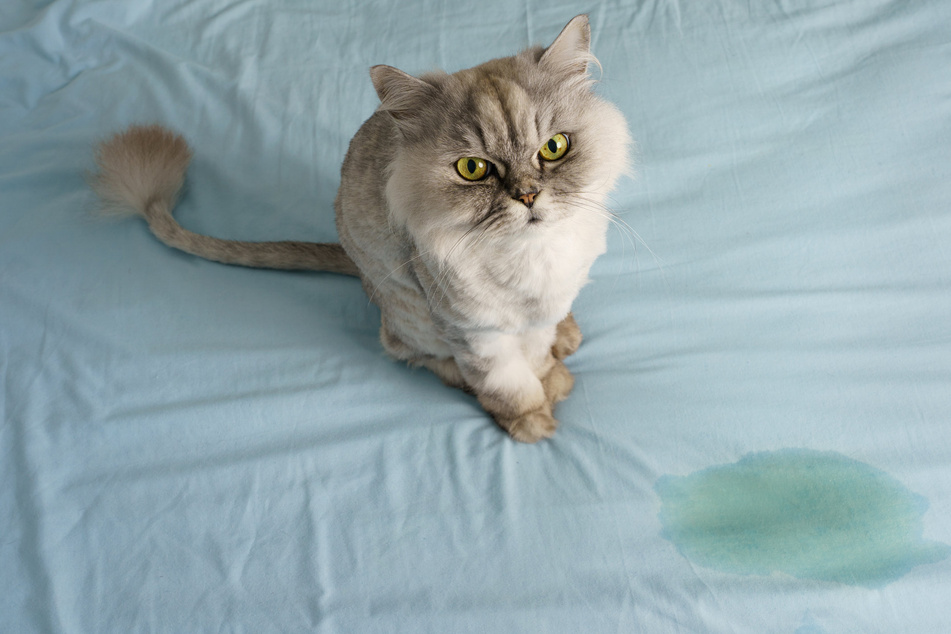
Cats are, in general, ridiculously clean. Just think about how much time felines spend licking the living hell out of themselves. here is one animal health and stress-related area where they're not so clean: the toilet.
Has your cat been peeing all over the place? Is your cat having trouble holding its pee in? Are there little puddles popping up around your home? Try not to worry. Yes, cat urine might leave stains, but there is a lot to learn from your cat's peeing habits.
In this Cat Guide, you will find out why your cat has been peeing everywhere, and a few tips for toilet training your favorite feline.
Why is my cat peeing so much?
There are many possible reasons why your kitty has suddenly abandoned its litter box in favor of the softest carpet it can find, your couch, or somewhere else around the house. It's not necessarily about "how much" your feline friend is peeing, and more of an issue of where and why they are peeing.
There are three common reasons for your cat peeing too much and in places that it shouldn't be peeing:
When cat peeing indicates health problems
Cat owners won't always notice right away if their cat is sick, or quietly enduring pain without kicking up a huge fuss. That being said, it's important to take your kitty cat in for check-ups at the vet regularly to ensure their overall health is in tip-top shape.
In the case you've noticed your cat is peeing everywhere except for its litter box, it could be because it associates the tray with pain. This association could cause the cat to relieve itself in different places outside its usual relief tray.
However, there are some medical conditions that can cause your cat to change its peeing habits.
Some diseases that can lead to a cat peeing everywhere include:
- Bladder infection or urinary tract infection.
- Bladder or urinary stones.
- Renal insufficiency.
- Diabetes.
If your cat is peeing or pooing everywhere for no explainable reason, it's best to take them to a vet for a closer look. It's better to be safe than sorry!
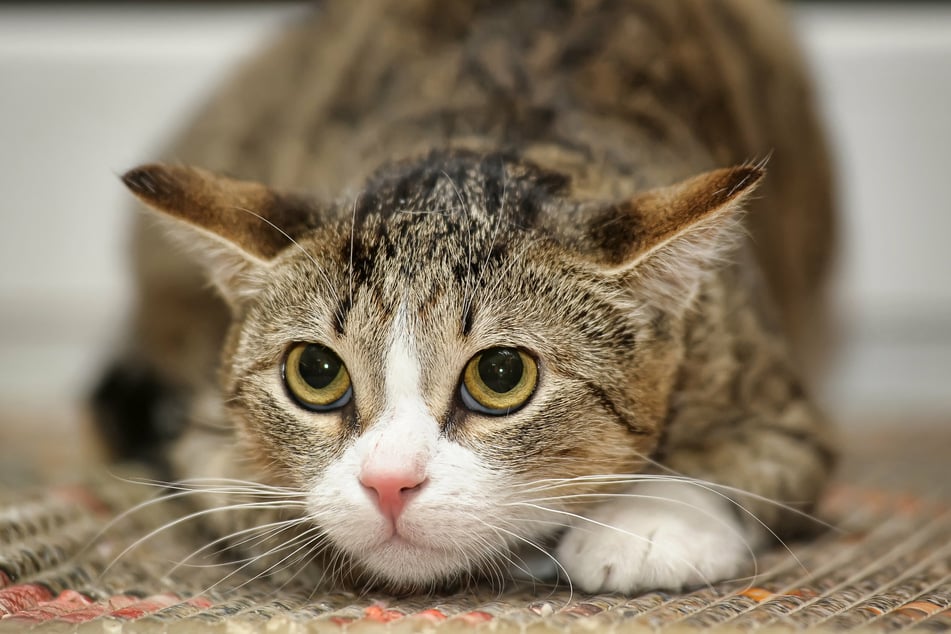
Cat peeing a lot because of bad litter box
Cats spend hours cleaning themselves every single day. They are incredibly diligent about it, licking and licking until they feel fresh and ready to rock 'n' roll! Such fastidious animals are certain to be extra careful about what they get on their fur. Think about it: would you step into a toilet? Probably not. However, domesticated cats generally don't have any other choice.
As a result, cats will find a better place (from their perspective) to do their business if they are unhappy with the state of their litter box. Reasons for this can include:
- The litter box is too small and therefore very uncomfortable for your kitty!
- Their box is in a location that they're not very comfortable with.
- The litter box isn't regularly cleaned
Keep in mind: If you own or look after several cats, make sure to get multiple litter boxes, as felines aren't thrilled about sharing.
Cat peeing everywhere because of stress
Have you noticed that your cat is also showing some signs of stress? These fluff balls can get freaked out by a lot of things, even if they like to pretend that they're stronger than a Marvel hero. Has your kitty been a little more withdrawn? Is it eating and drinking less, and looking noticeably tense around the house? This could explain its peeing behavior.
Like humans, even small things can throw off a cat's mental and emotional balance. These small triggers can cause a cat to pee in unexpected locations and at unexpected times. Here are a few reasons why a cat might be a bit stressed:
- Their environment has changed (new furniture, home renovations).
- You have moved to a new home or apartment.
- A baby has been welcomed into the home.
- One of the cat's "humans" has moved out and "disappeared."
- Another animal or pet has joined the family.
- It's feeling lonely, bored, or under-challenged.
- There might might be a lot of unusual noises at the moment (a baby crying, loud music, construction noise).
How to clean cat pee
Cat pee can sometimes smell worse than cat farts! Even if that weren't true, cat urine is certainly more destructive. When a cat relieves itself somewhere it shouldn't, the liquid can soak into anything like carpets, clothes, and furniture. Given its fast tract to destruction, moving quickly to treat the affected area is recommended!
Like most stains, the smell of cat pee will get worse over time if not treated. Depending on what has been stained by cat pee, there are a couple of options for cleaning up cat pee:
- Use baking soda & vinegar: While vinegar doesn't smell the best, its acidic nature actually neutralizes the smell of cat pee. After soaking up as much of the urine as you can with a cloth, apply some vinegar to the area with a rag. Then, apply some baking soda directly on the area and let it soak in.
- Use an enzyme-based cleaner: Enzyme-based cleaners are excellent for eliminating odor. These break down the acids found in cat urine, helping to get rid of the smell.
- Vacuum the area before blotting it or adding a solvent: By vacuuming the cat pee stain, you will actually remove liquid from the area, making it easier to clean.
Keep in mind: Once you have cleaned a cat pee-soiled item or area, make sure to stop your cat from returning there. You don't want it to think that this spot is its new toilet.
How to toilet train your cat
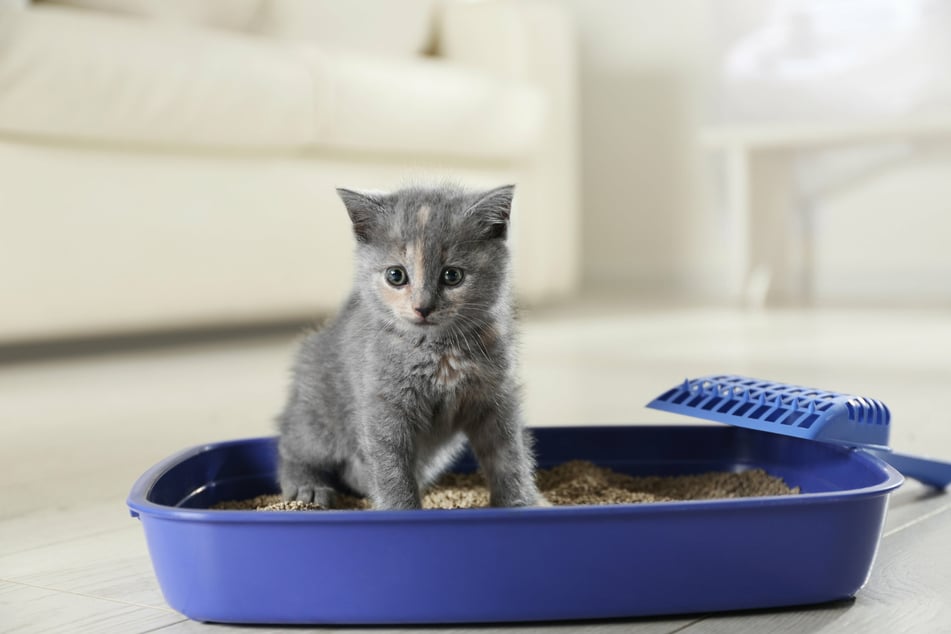
Try not to get angry if you find that your cat has relieved itself on your brand-new futon. Your velvet paw will make strange mistakes every now and again – just like people do!
To get your cat on the road to toilet re-training recovery, TAG24 rounded up some quick tips and tricks to help your four-legged friend remember to pee in its litter box. Let's dive in!
Tip 1 - Visit the vet: Make sure to take your cat to the vet as soon as possible so that you can rule out any potential medical or health-related causes. When your kitty is acting strange, your vet is always great resource to call!
Tip 2 - Change up the location of the litter box:
Make sure that your cat's litter box is in a quiet and protected place with little traffic, so your kitty can do its business in private.
Tip 3 - Clean the litter box: No one enjoys using a dirty toilet, and neither do cats. Once a cat has done its business, it's best to remove its waste as soon as possible. Try doing it every morning and evening. Keep in mind that not all litter needs to be replaced this regularly. If it's a clumping type, then you might be OK cleaning it once a week.
Tip 4 - Remove cat urine straight away: We've mentioned this before, but try to treat the urine spots as quickly as possible using vinegar and/or baking soda. Using the methods described above neutralizes the odors and reduces the likelihood your cat will smell it. Where they smell pee, they think it's their toilet and will continue to use that area as the bathroom. Help your kitty avoid being a repeat offender!
Tip 5 - Get an additional littler box: Cats like a bit of diversity when it comes to the location in which they poop and pee. Set up another litter box elsewhere to give your cat more options.
Tip 6 - Improve your cat's nutrition: Some people don't feed their cats the best food. Getting the right nutrition into its little body plays a huge role in maintaining a cat's health. For example, being overweight increases the cat's risk of developing bladder infections, urinary stones, and arthritis.
Tip 7 - Use pheromones: Cats actually emit their own scents, called pheromones. If a kitty perceives these scents in its environment, they associate that space with security and wellbeing. It's kind of like cat sweat in a way, though that's a different story. Synthetically produced pheromones can help reduce your cat's stress.
Tip 8 - Recognize and eliminate stress factors: Some cats feel bored by too little variety, while others are overwhelmed by too many animal roommates. Both can trigger stress in these four-legged beasts. It is recommended that you make sure that your home is paw-fectly cat-friendly and provides plenty of play opportunities for your feline friend.
Remember that consistency is the most important thing when toilet training your cat. If you continuously stop it from relieving itself outside the litter box, then it will slowly learn to always do it in the tray and not on your belongings.
Why did my cat pee on me? Final notes
Cats do not randomly pee in an apartment if they have been toilet trained, and and they certainly don't do it in protest. If you have taken your cat to the vet, and all potential health problems have been ruled out, then you need to investigate a variety of other options. Make sure to try out our recommendations to help make your four-legged friend feel comfortable peeing in the right spot!
Cover photo: 123RF / Dariakulkova
